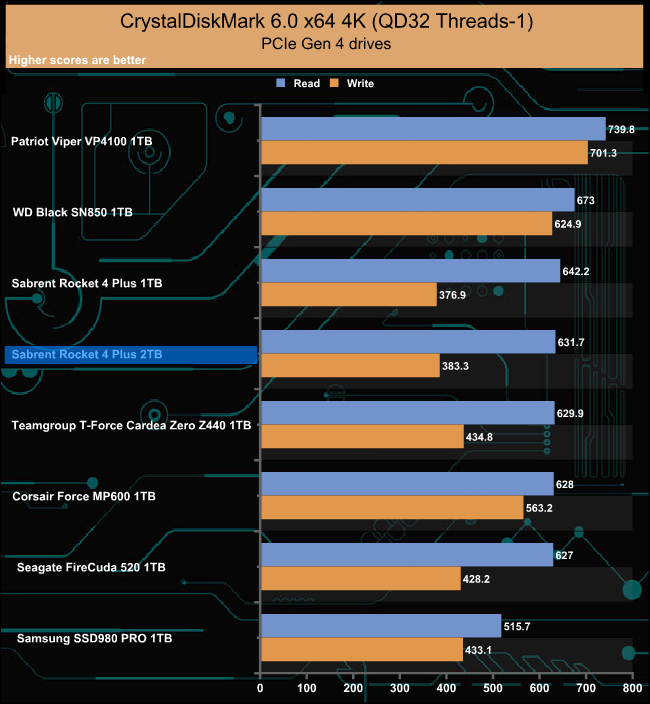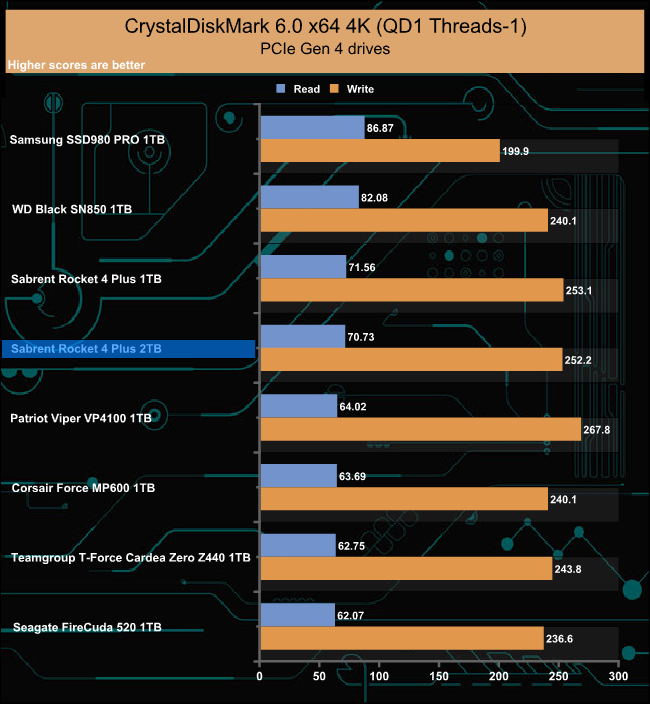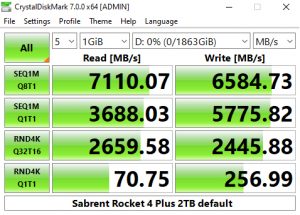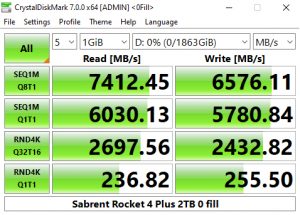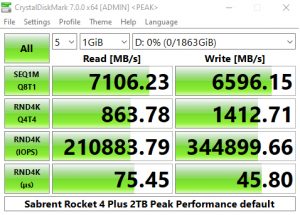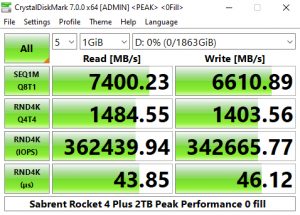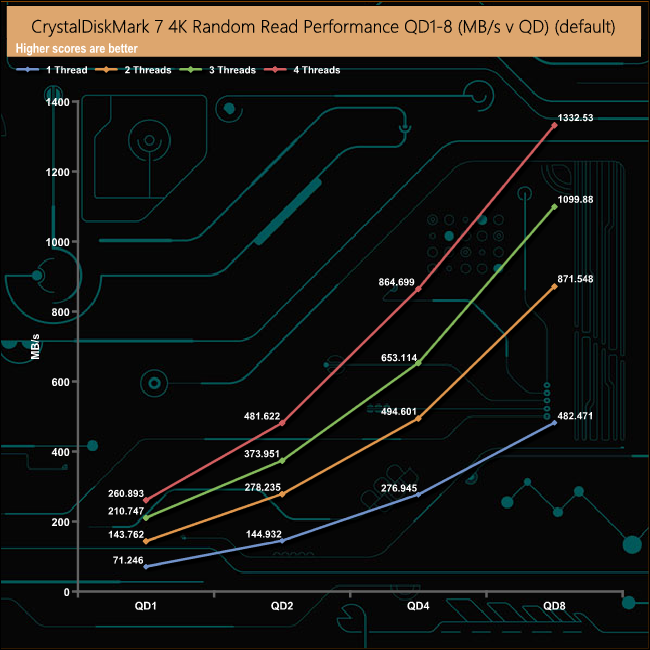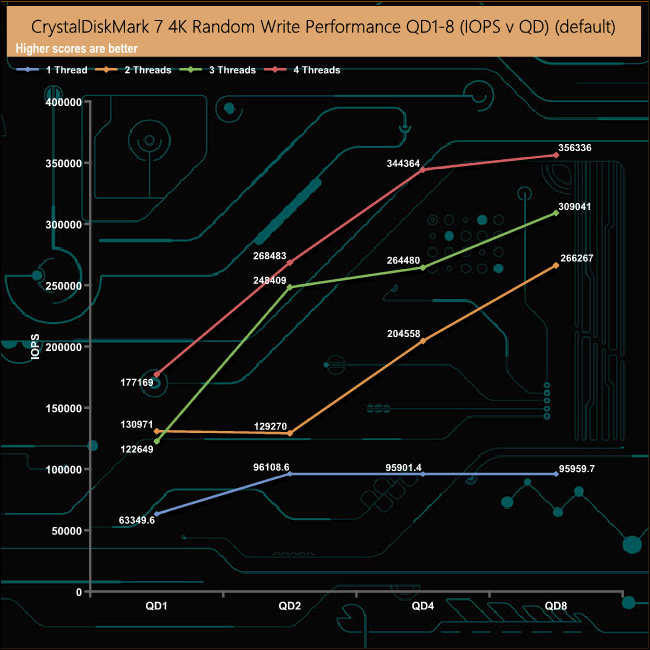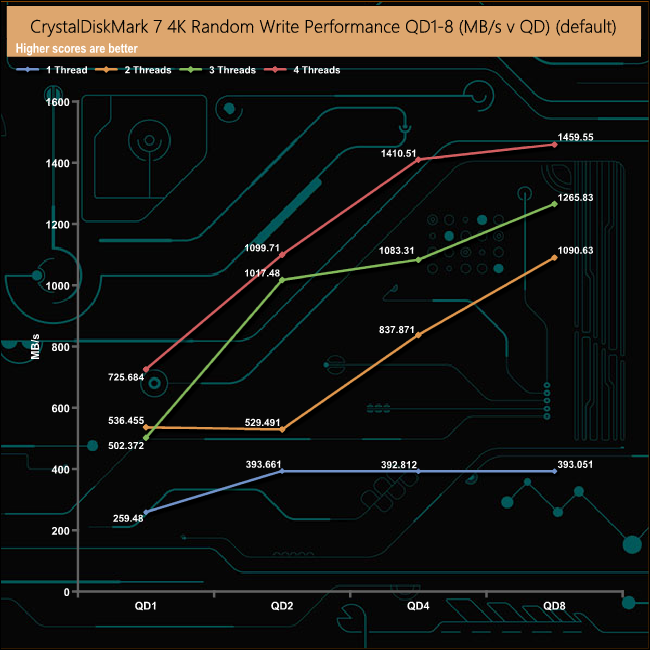CrystalDiskMark is a useful benchmark to measure theoretical performance levels of hard drives and SSD’s. We are using versions 6.0. and 7.0.0. We are also beginning to use version 8 which includes test settings for NVMe drives.
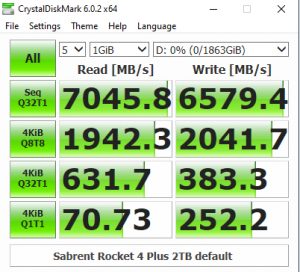
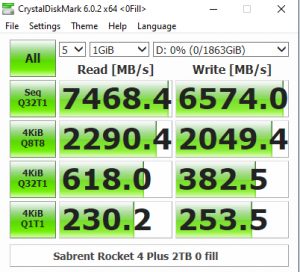
Looking at the two CrystalDiskMark result screens it appears that the new E18 controller that the Rocket 4 Plus uses is much more efficient when reading compressible Sequential and 4K data at certain queue depths.
We can also confirm the official Sequential read performance of 7,100MB/s at 7,468MB/s although the maximum tested Sequential write figure of 6,579MB/s was a little shy of the official 6,600MB/s.
CrystalDiskMark 7
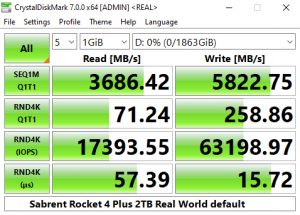
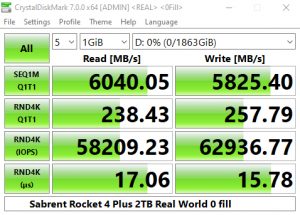
CrystalDiskMark, version 7, includes a couple of profiles that can be used for testing – Peak Performance and Real World. The result screens for these two profiles not only display MB/s results but also IOPS and latency.
Looking at the results for the Peak Performance profile, we could confirm both official Sequential performance figures. The drive is rated up to 7,000MB/s for reads, with the tested drive producing a best of 7,400MB/s, and up to 6,600MB/s for writes, with the best test result of 6,610MB/s.
When it comes to random performance the drive is rated as up to 650,000 IOPS for reads and up to 700,000 IOPS for writes. As you can see from the Peak Performance results we couldn't get close to either of those figures using CrystalDiskMark 7. The best read figure we saw was 362,439 IOPS with writes at 342,665 IOPS.
We also used CrystalDiskMark 7 to test the random performance of the drive at lower queue depths (QD1 – QD8 where most of the everyday workloads occur) using 1 to 4 threads.
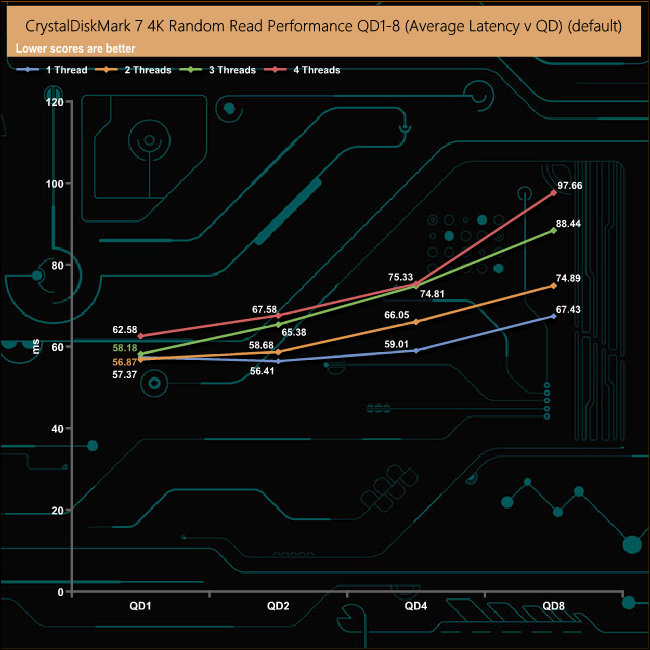
The Sabrent Rocket 4 Plus read performance climbs smoothly throughout the tested queue depths and threads with a peak performance figure of 325,325 IOPS (1,332.53MB/s) at QD8.
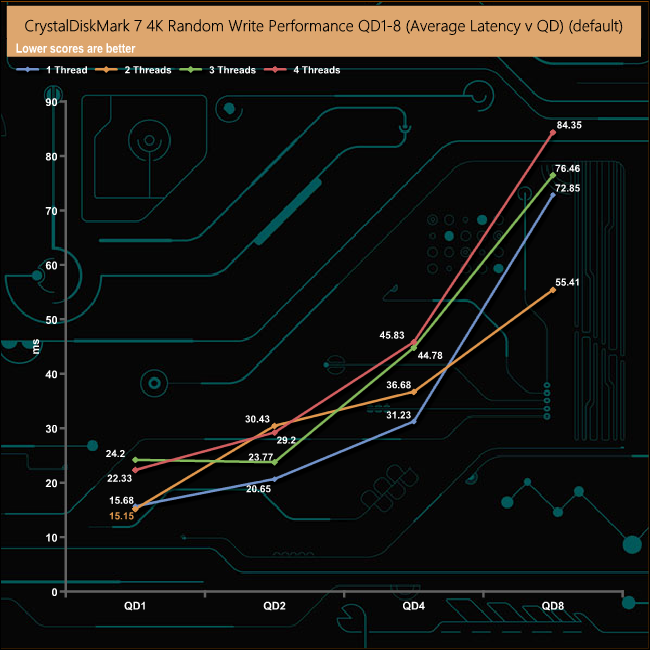
In the write tests, the performance was a bit more erratic. The best performance figure we saw was the 356,336 IOPS (1,459.55MB/s) using 4 threads at a QD of 8.
CrystalDiskMark 8 NVMe tests.
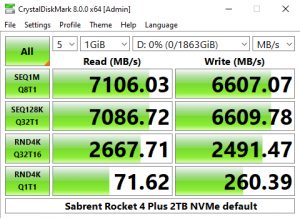
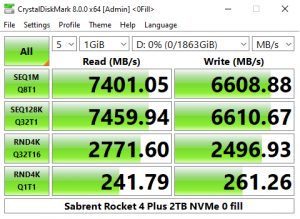
Using the default NVMe setting which forms part of CrystalDiskMark's v8.0.0 benchmark, we could again confirm the official maximum Sequential read figure of 7,100MB/s with a test performance of 7,106MB/s. Tested writes came in at 6,607MB/s, again confirming the official maximum of 6,600MB/s.
Be sure to check out our sponsors store EKWB here
 KitGuru KitGuru.net – Tech News | Hardware News | Hardware Reviews | IOS | Mobile | Gaming | Graphics Cards
KitGuru KitGuru.net – Tech News | Hardware News | Hardware Reviews | IOS | Mobile | Gaming | Graphics Cards


